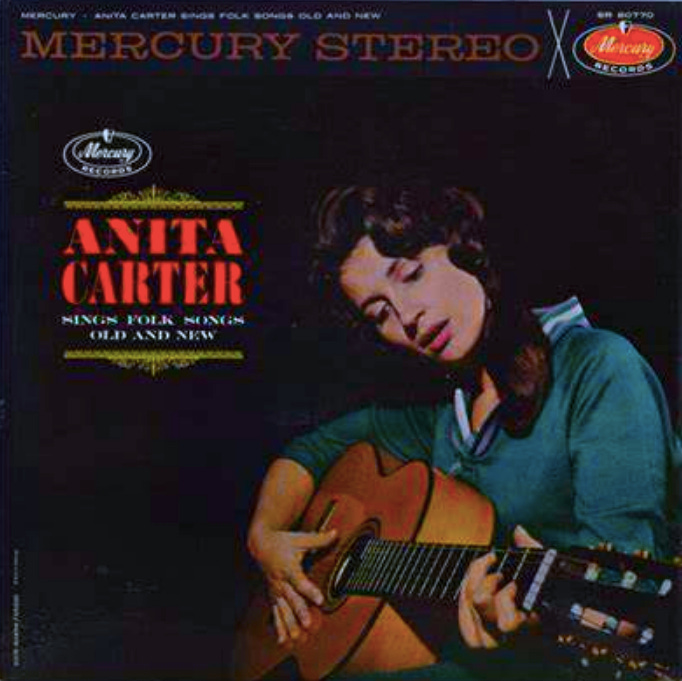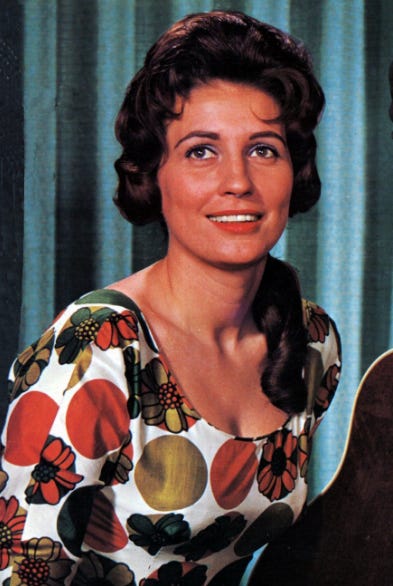Anita, where’ve you been all my life?
Every few years an extraordinary gem from the past is “resurrected” and thrust again into the collective, and I predict “Voice of the Bayou” will stir an Anita Carter renaissance into being; it’s a highly arresting song and Carter’s vocals are incredible. I knew she could sing, but I had no idea of how really clear and precise her tone was.
My mother’s people were country folks from deep rural Louisiana and the Carter family were superstars on the Grand Ole Opry and the Louisiana Hayride radio programs in the 1950s, and so I’m certainly familiar with them: Mother Maybelle was the head of the singing trio that included Helen, the boy-crazy June (who provided the comic relief), and Anita (who was the actual songbird of the bunch). They were incredibly influential fixtures in country music as a developing art form and Anita was positioned to be one of the crossover performers like Brenda Lee. June, of course, became Mrs. Johnny Cash and forged one of the great musical partnerships in 20th century entertainment.
Judge Anna’s article (at the bottom) alerted me to this positively otherworldly selection from Anita in 1962 — and it’s amazing. But see what you think.
ANCIENT HEBREW IN LOUISIANA
By Anna Von Reitz
Uma -Pavel-Azamah means “Glory of the humble flame God has helped” — in ancient Hebrew.
What is it doing in the middle of a song called “Voice of the Bayou” recorded in 1962 by Anita Carter?
Recorded in a minor key typical of Hebrew and Aramaic music, this appears to be a deeply embedded cultural artifact presented as a Louisianan folksong, but actually being a fragment of a Biblical Hebrew song circa 1800 BC sounded out of scriptures of the Psalms using the Cantor marks still showing as part of the Orthodox scripture,
What are we supposed to think? That French settlers brought forward a Hebrew folksong that is almost 4000 years old and added words about voodoo to explain away actual context of the meaning. Anita Carter’s rendering discloses the vibratory character of Hebrew music— from the shofar to the solemn singing of the cantors.
If a scrap of nearly 4000 year-old scripture-based music can show up and be mistaken as a Louisianan folksong about voodoo and the moon—- anything is possible. Anita Cash’s unearthly 1962 version of “Voice of the Bayou” is available on YouTube.
Findings like this underscore the wide-ranging complexity of hidden human history. How are Native Louisianans singing in Hebrew to this day?
http://www.paulstramer.net/2024/07/ancient-hebrew-in-louisiana.html
ANALYSIS
Wings of Pegasus Analysis: Is THIS voice from 1962 the most HAUNTING you'll ever hear?





